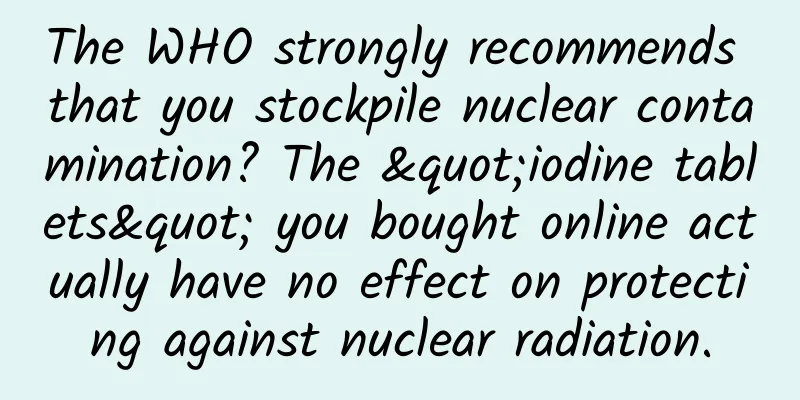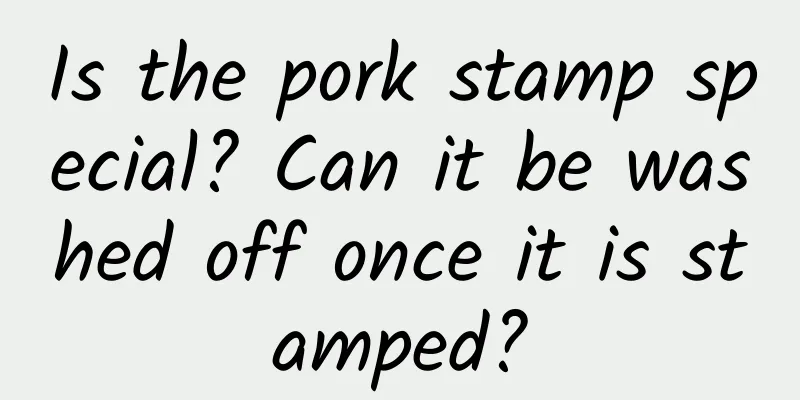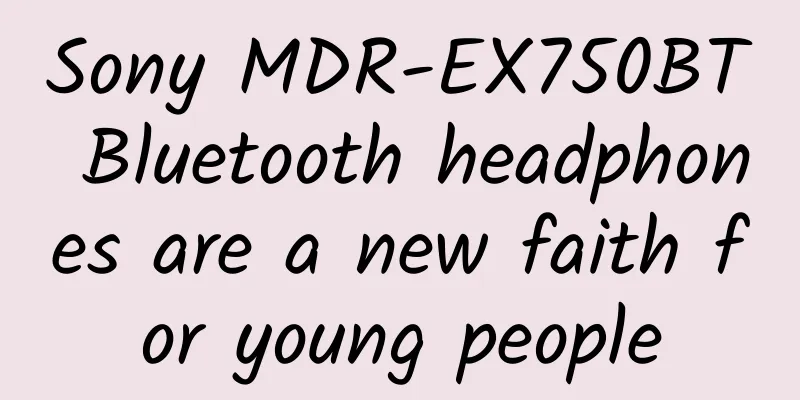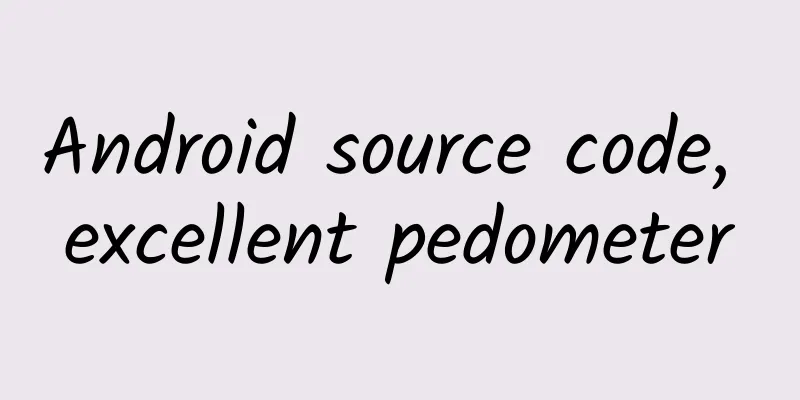The WHO strongly recommends that you stockpile nuclear contamination? The "iodine tablets" you bought online actually have no effect on protecting against nuclear radiation.

|
1. Since the World Health Organization updated the list of anti-nuclear radiation drugs in January this year, some iodine-containing products have been hot-selling on online shopping platforms, and some iodine-containing nutritional foods are even promoted as "WHO nuclear preparedness" products. 2. The production and reserve of potassium iodide tablets for nuclear emergency in my country is proceeding in an orderly manner. There is no need to stockpile potassium iodide and other related drugs. We should also be careful about some exaggerated marketing propaganda of iodine-containing foods on online shopping platforms. "I bought it as a spare, and I hope I never have to use it." "Many people in Europe are stockpiling iodine tablets. The situation is uncertain right now, so they bought them in advance to prevent price increases." "The WHO has recommended stockpiling, and several of my friends have stockpiled, so I'll buy some first to be assured." The above are several buyer reviews of a product called potassium iodide tablets on a certain e-commerce platform. Many people are worried that the radiation released by the discharge of nuclear wastewater into the sea will spread. In addition, after seeing the anti-radiation drug reserve list previously released by the World Health Organization, they want to stock up on potassium iodide tablets to protect against radiation. If you search for keywords such as "anti-nuclear radiation" and "nuclear radiation medicine" on some online shopping platforms, many products will pop up, among which potassium iodide tablets are the best-selling. "WHO nuclear defense stockpiling, nuclear contamination stockpiling, suitable for family stockpiling", Yanjianweishi noticed that some products have eye-catching words such as WHO nuclear defense, nuclear contamination stockpiling, and family stockpiling on the product window page. In addition, the product title contains keywords such as "anti-nuclear radiation medicine" and "health products". Based on this, Yanjianweishi consulted the store's customer service. The customer service said that this potassium iodine tablet is the same thing as the potassium iodide tablet, an anti-nuclear radiation drug recommended by the World Health Organization. You can take one tablet a day. It can be taken in the event of a nuclear explosion or leak, and it can also be taken daily to prevent nuclear wastewater radiation and slowly enhance your resistance. What is the list of anti-radiation drugs recommended by the World Health Organization? Can potassium iodide be taken daily to protect against radiation? Eye Health conducted some research. The ins and outs of WHO's update of nuclear radiation medicine list On January 27, 2023, the World Health Organization released "National Stockpiles for Radiation and Nuclear Emergencies: Policy Recommendations", which details the latest information on stockpiled drugs for nuclear and radiation emergencies, as well as clinical drugs recently approved by some countries for radiation injuries. ①Why does this file exist? This document is a World Health Organization guidance reference report on establishing national radiation emergency reserves. The first edition was published in 2007. More than a decade later, with better scientific solutions, it was updated. ②Who is the document for? Yanjianweishi noted that "National Stockpile for Radiological and Nuclear Emergencies: Policy Recommendations" clearly states that the target readers are not ordinary people, but policy makers and government officials, emergency workers, healthcare providers, pharmacists and researchers. Screenshot from the World Health Organization official website In other words, this list is not a recommendation of medicines for the general public, but a suggestion for the reserve materials needed by the state and relevant departments for emergency response. Each country and relevant department can establish corresponding storage and distribution methods based on their own medical resources and risk assessment. ③What is the direction of the file update? The World Health Organization updated this document amid the conflict between Russia and Ukraine, sparking speculation and concerns among many netizens about the "nuclear crisis". In response to an interview with China News Service's National Affairs Express, the World Health Organization said that the update of the document has nothing to do with the current changes in the international political situation. It is an update and release in accordance with standard practice, based on a work plan proposed by the World Health Assembly in 2021. The key message that this list wants to convey is that countries can ensure that they have access to relevant drugs in the event of an emergency, and prevent or reduce the damage to people's health caused by radiation. What is the production and reserve situation of potassium iodide in China? Potassium iodide (KI), commonly known as iodine tablets, is divided into two categories: medicinal and nuclear emergency. The two categories differ in terms of drug dosage, usage, indications, etc. According to information on the website of the National Medical Products Administration, as of July 11, 2023, 13 potassium iodide/potassium iodide tablets products in China have obtained production batch numbers. Screenshot from the website of the State Drug Administration There are 5 production batch numbers of "potassium iodide tablets", all of which are domestically produced drugs. These manufacturers include Yuanda Pharmaceutical (China) Co., Ltd., Xiuzhen Pharmaceutical Group Co., Ltd., Tianjin Lisheng Pharmaceutical Co., Ltd., etc. Among these 5 types of potassium iodide tablets, one has a specification of 130mg (produced by Guangzhou Baiyunshan Guanghua Pharmaceutical Co., Ltd.), and the other 4 have specifications of 10mg. Screenshot from the website of the State Drug Administration In response to people's concern about the reserve situation of potassium iodide tablets for nuclear emergencies, as early as January this year, Yuanda Pharmaceutical, a potassium iodide manufacturer, stated in an interview with the media that Yuanda Pharmaceutical has organized production preparations for potassium iodide tablets since November 2022. Currently, all production reserves are proceeding in an orderly manner, actively responding to international market demand. Eye Health noted that the document published by the World Health Organization also lists examples of countries such as Argentina, Brazil, France and Germany establishing and managing national anti-radiation reserves, providing reference for countries and regions that are still not fully prepared in this field. For example, the Brazilian Ministry of Health issued an emergency plan for public health emergencies caused by chemical, biological, radiological and nuclear agents in 2014. For nuclear emergencies, there are 200,000 potassium iodide tablets (specification 130mg) near the nuclear power plant in Angra dos Reis, Rio de Janeiro State. These tablets were purchased by the Ministry of Health and stored by the local government. The "iodine tablets" you bought online actually have no radiation protection effect Despite this, some people still buy related products online with the mentality that "iodine can resist radiation, so it's safer to stock up." Eye Health found through a search on the online shopping platform that the iodine content of many products on sale does not meet the radiation protection requirements. For example, this one: each pill contains 225μg (0.225mg) of iodine. And this one: Looking at the nutritional composition table, each tablet contains 40μg of iodine (40mcg=40μg=0.04mg). According to documents from the World Health Organization, in order to achieve the effect of blocking the damage of radioactive iodine, the recommended doses of potassium iodide (KI) for people of different ages are different. The recommended dose of potassium iodide depends on age. For example, a single dose of 130 mg of potassium iodide (containing 100 mg of iodine) is sufficient for adolescents and adults (over 12 years old). Repeated doses may be required in cases of prolonged (over 24 hours) or repeated exposure, unavoidable ingestion of contaminated food and drinking water, and inability to evacuate. Assuming that an adult takes the above product with an iodine content of 40μg (0.04mg) per tablet, they would need to take about 2,500 tablets at a time to achieve an iodine intake of 100mg... Is this iodine potassium tablet, which contains 40μg of iodine per tablet, a medicine, a health product, or a food? Eye Health checked the official website of the company that owns the product and found that its product type is food. "Can this iodine potassium tablet be taken daily to prevent nuclear radiation? Is it true that a store on an online shopping platform sells this product claiming to be 'WHO nuclear reserve'?" Regarding these questions, Yanjianweishi called the manufacturer of the product but the call was not connected. It then sent an inquiry email but had not received a reply as of press time. Don’t stock up blindly! Treat potassium iodide tablets scientifically The timing and amount of iodine intake are both important According to information published by the World Health Organization, potassium iodide is not an antidote for radiation exposure; it simply protects the thyroid gland. Please note that potassium iodide: It does not prevent radioactive iodine from entering the body, but it does prevent it from accumulating in the thyroid gland. It does not provide protection against any other radioactive material that might be released into the environment as a result of a nuclear accident; Does not provide protection against external radiation (e.g. radioactive material deposited on the ground, on surfaces or on food). The effectiveness of potassium iodide depends on timely administration, which is best within 24 hours before and 2 hours after the expected exposure. It is still reasonable to take potassium iodide within 8 hours of exposure, but taking it after 24 hours will not provide any protection. Please remember that ordinary people should not use potassium iodide for nuclear emergency as a general protective measure when a nuclear incident is expected. Potassium iodide tablets should only be taken when a major accident (such as a nuclear explosion) is encountered and the national health authorities give clear instructions. Potassium iodide tablets for nuclear emergency are national strategic materials. When they are really needed, relevant departments will guide the public to use them reasonably. Iodine-containing nutritional supplements cannot meet radiation protection requirements The World Health Organization recommends that adults consume about 150-300 micrograms of iodine per day. It has always been necessary to consume an appropriate amount of iodized salt. The concentration of iodized salt in my country is 25 micrograms per kilogram. If each person consumes 6 grams of salt per day, the daily iodine intake is 150 micrograms. For the general population, as long as they can have a balanced diet and eat qualified iodized salt, they can ensure iodine nutrition and do not need to take iodine-containing nutritional supplements. Many iodine-containing nutritional supplements on online shopping platforms are measured in micrograms, which do not meet the requirements of nuclear emergency radiation. In addition, excessive iodine can cause adverse reactions such as high-iodine goiter and even iodine-induced hyperthyroidism. In short, the general public should not be blindly anxious and there is no need to hoard potassium iodide and other related drugs. They should also keep their eyes open for some exaggerated marketing propaganda on online shopping platforms and learn to distinguish them to avoid wasting money and hurting their health. If you really can't help but buy it, ask yourself first: Have you finished eating the iodized salt you rushed to buy in 2011? References: [1] Potassium iodide for thyroid protection during a nuclear or radiological emergency https://www.who.int/en/news-room/questions-and-answers/item/use-of-potassium-iodide-for-thyroid-protection-during-nuclear-or-radiological-emergencies [2]WHO updates critical medicines list for radiological and nuclear emergencies https://www.who.int/news/item/27-01-2023-who-updates-critical-medicines-list-for-radiation-and-nuclear-emergencies [3]National stockpiles for radiological and nuclear emergencies: policy advice https://www.who.int/publications/i/item/9789240067875 [4] WHO responds to the update of the list of nuclear radiation drugs: It has nothing to do with changes in the international political situation https://www.guancha.cn/internation/2023_02_03_678406.shtml?s=zwyxgtjdt [5] The World Health Organization updates the list of drugs for responding to nuclear radiation, etc. "Radiation protection" concept stocks surge, and industry insiders say don't panic and stockpile drugs http://www.zqrb.cn/finance/hangyedongtai/2023-01-31/A1675148765300.html [6] Cui Fengmei, Xue Huiyuan, Zong Xumin, Gao Jin, Sun Liang, Wan Jun, Chen Na, Tu Yu. Research progress on emergency drug reserves for nuclear and radiation accidents[J]. Chinese Journal of Radiological Medicine and Protection, 2023, 43(5): 393-399, DOI: 10.3760/112271-20230206-00024. |
<<: The first step to longevity: eat a little fatter!
Recommend
School is back, here is a guide for children who have never had a positive experience
As the Lantern Festival comes to an end, universi...
2020 Zhihu promotion and traffic generation skills!
Choice is greater than effort? No comment. I don’...
A guide to hot topics during the Spring Festival. Let’s see how big brands conduct their Spring Festival marketing!
The Spring Festival is the most anticipated and i...
What are the offline application scenarios of mini programs? What is Mini Program for offline merchants?
What are the offline application scenarios of min...
Using data to interpret "Ode to Joy 2" from all angles
As a data analysis enthusiast, the author of this...
Corn's ancestor was a weed? Yes, and it's still there today
The history of human civilization is accompanied ...
APP channel promotion evaluation model: How to bring better quality volume?
The concept of the "second half of the Inter...
Are Chinese rockets really starting to burn "coal"? | Expo Daily
Your best "insider" in the scientific c...
How to migrate the Dreamweaver CMS database to EasyCMS, data lossless migration service
Can DeDecms (Dreamweaver) CMS content data be tra...
After laptops, Sony has made e-books a failure
When it comes to e-books, Sony is the natural pion...
Are you not clear about the event promotion planning process? Come in quickly!
1. Ideas for event promotion planning 1. Five ele...
Based on 800 million massive data, here are 5 tips to increase the click-through rate of news messages
The China Internet Network Information Center (CN...
How can enterprises promote themselves well?
How can enterprises do a good job of promoting th...
Even a mosquito bite can leave a scar, is it because you are born with a "scar body"? Huaxi doctors: Most likely you did not operate properly
Scars are not fatal! But scars hurt people’s conf...
How many books have you read?
© Book Riot Leviathan Press: In 2006, a study on ...









